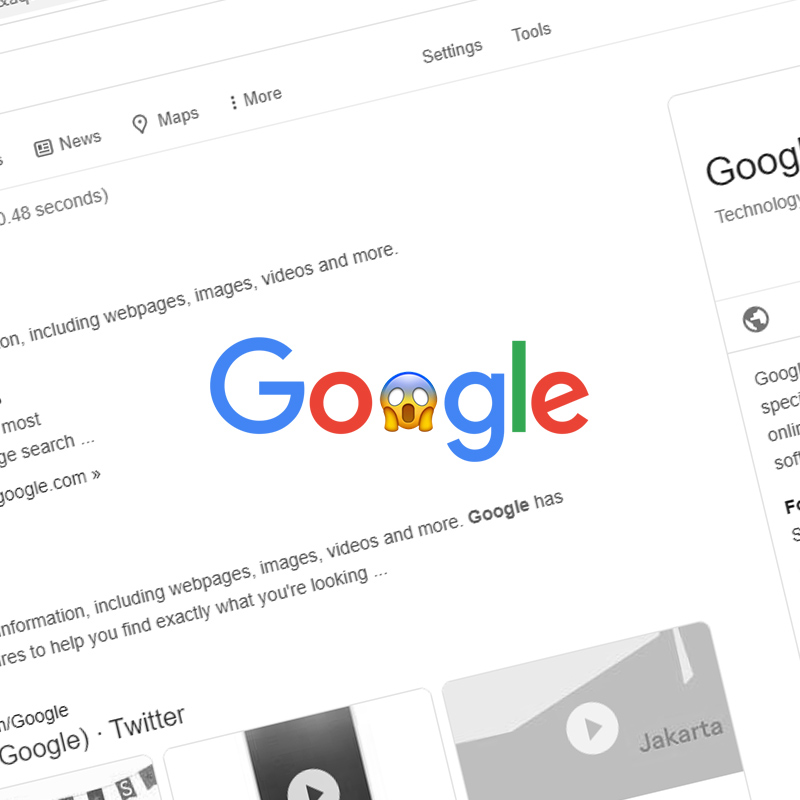
Google Search's ranking algorithm, known as PageRank, is the thing that made Google, Google.
It was based on the idea by its founders, Larry Page and Sergey Brin, in which the search engine would use links from websites to determine the importance and relevance of a webpage.
But this time, Google said that PageRank is no longer that relevant.
Google’s Gary Illyes confirmed at a search marketing conference that now, Google needs very few links.
By confirming that links are not that important anymore, what this means, PageRank is no longer the best Google Search has.
The idea of PageRank, according to the two Google founders on their research paper titled "The Anatomy of a Large-Scale Hypertextual Web Search Engine" was that it was possible to harness the power of anchor text to determine the subjective opinion of relevance from actual humans.
PageRank was suggested as a method to essentially crowdsource the opinions of millions of website expressed through the link structure between each webpage.

But fast forward, the web has evolved so much, and that AI continues having prominence in determining what's what, that PageRank alone is no longer relevant.
While it still matters, and is still considered one of the criteria, but no longer that important.
In its arsenal, Google Search uses links from websites as a vote of confidence to determine the importance and relevance of web pages, as well as other algorithms and methods. In other words, Google has lots of criteria to rank websites
Google Search works like this:
- Crawling and Indexing: Google uses automated programs called "crawlers" or "spiders" to discover new and updated web pages. These crawlers follow links from one page to another, creating an index of the web's content.
- PageRank Algorithm: Developed by Larry Page and Sergey Brin when they were still in college, it assigns numerical value to each webpage. The score is determined by the number and quality of links pointing to a page.
- Quality and Relevance: Not all links are treated equally. Google evaluates the quality and relevance of the linking pages. A link from a reputable and relevant website carries more weight than a link from a less authoritative source.
- Anchor Text: The text used in the link (anchor text) also plays a role in determining relevance. If many links use similar anchor text to point to a page, it indicates that the page is relevant for those terms.
- Internal Link Structure: Google also considers the internal link structure of a website. Well-structured internal linking helps search engines understand the hierarchy and importance of pages within a site.
- User Experience Signals: While links are crucial, Google also takes into account user experience signals like bounce rate, time spent on the site, and click-through rate from search results. These factors help in refining the ranking further.
- Continuous Updates: Google continuously updates its algorithms to provide the most relevant and useful search results to users. Over time, factors like mobile-friendliness, site speed, and secure browsing have also become significant ranking factors.
I shouldn't have said that... I definitely shouldn't have said that
— Gary 鯨理/경리 Illyes (so official, trust me) (@methode) April 19, 2024
The reason why links matter less, is due to how things have evolved.
The initial state of anchor text when Google first used links for ranking purposes was absolutely non-spammy, which is why it was so useful. Hyperlinks were primarily used as a way to send traffic from one website to another website.
But by 2004 or 2005, when people began spamming for links, Google was using statistical analysis to detect manipulated links. In 2006, words, like "advertising," stopped passing link value. Links from internet directories also stopped passing values.
Then in 2012, Google deployed a massive link algorithm called Penguin that destroyed the rankings of likely millions of websites, many of which were using guest posting.
And ever since, link signals continued deteriorating that in 2023, Gary Illyes shared at a PubCon Austin that links were not even in the top 3 of ranking factors.
Then, finally, in March 2024, coinciding with the March 2024 Core Algorithm Update, Google updated their spam policies documentation to downplay the importance of links for ranking purposes.
Google started saying that "Google uses links as a factor in determining the relevancy of web pages," and stopped saying "Google uses links as an important factor in determining the relevancy of web pages."